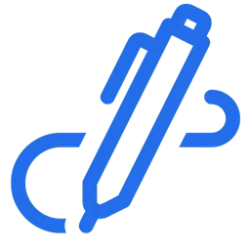aaaaaaaaaaaatr5
New member
- Local time
- 1:22 AM
- Posts
- 3
- OS
- Windows 11
I have found out that all the VMs that were powered off had lost their VMX and VMDK files, whereas the suspended machines have lost the VMDK files. When I created a new VM after the loss of these files, they seemed to work perfectly. I got the error codes:
"File not found: <vm name>.vmdk
This file is required to power on the virtual machine. If the file was moved, specify the new location",
or
"Could not open virtual machine <vm name> (C:\Users\<user>\OneDrive\Documents\Virtual Machines\<vm name>\<vm name>.vmdk):
File not found.
Remove <vm name> from the library?"
On 1 of the virtual machines that did have the VMX, but not the VMDK file, I tried to "fix the solution" by selecting the (wrong) VMDK file. I chose the file that ended with "s00XX.vmdk" (X, as a placeholder digit), instead of the right file (that was missing). However, I was unaware that this could cause a problem, and alas, an error message saying
"The file specified is not a virtual disk.
Cannot open the disk 'C:\Users\<user>\OneDrive\Documents\Virtual Machines\Windows Vista\Windows Vista-s001.vmdk' or one of the snapshot disks it depends on.
Module 'Disk' power on failed.
Failed to start the virtual machine."
I cannot change the disk since it is in its suspended state and I can't power it off since the disk is invalid.
I have attached the log files if required. The log files is for one of the guests, Windows Vista. If anyone has a solution to this issue, then I would greatly appreciate your help.
"File not found: <vm name>.vmdk
This file is required to power on the virtual machine. If the file was moved, specify the new location",
or
"Could not open virtual machine <vm name> (C:\Users\<user>\OneDrive\Documents\Virtual Machines\<vm name>\<vm name>.vmdk):
File not found.
Remove <vm name> from the library?"
On 1 of the virtual machines that did have the VMX, but not the VMDK file, I tried to "
"The file specified is not a virtual disk.
Cannot open the disk 'C:\Users\<user>\OneDrive\Documents\Virtual Machines\Windows Vista\Windows Vista-s001.vmdk' or one of the snapshot disks it depends on.
Module 'Disk' power on failed.
Failed to start the virtual machine."
I cannot change the disk since it is in its suspended state and I can't power it off since the disk is invalid.
I have attached the log files if required. The log files is for one of the guests, Windows Vista. If anyone has a solution to this issue, then I would greatly appreciate your help.
- Windows Build/Version
- Windows 11 Version 23H2 Build 22631.4169
Attachments
My Computer
System One
-
- OS
- Windows 11
- Computer type
- Laptop
- Manufacturer/Model
- ASUS
- CPU
- Intel Core i7-1195g7
- Memory
- 16GB DDR4
- Monitor(s) Displays
- 14" screen+ ScreenPad+
- Screen Resolution
- 1920x1080, 1920x515
- Hard Drives
- 1TB (954GiB)
- Browser
- Mostly Edge
- Other Info
- yes





